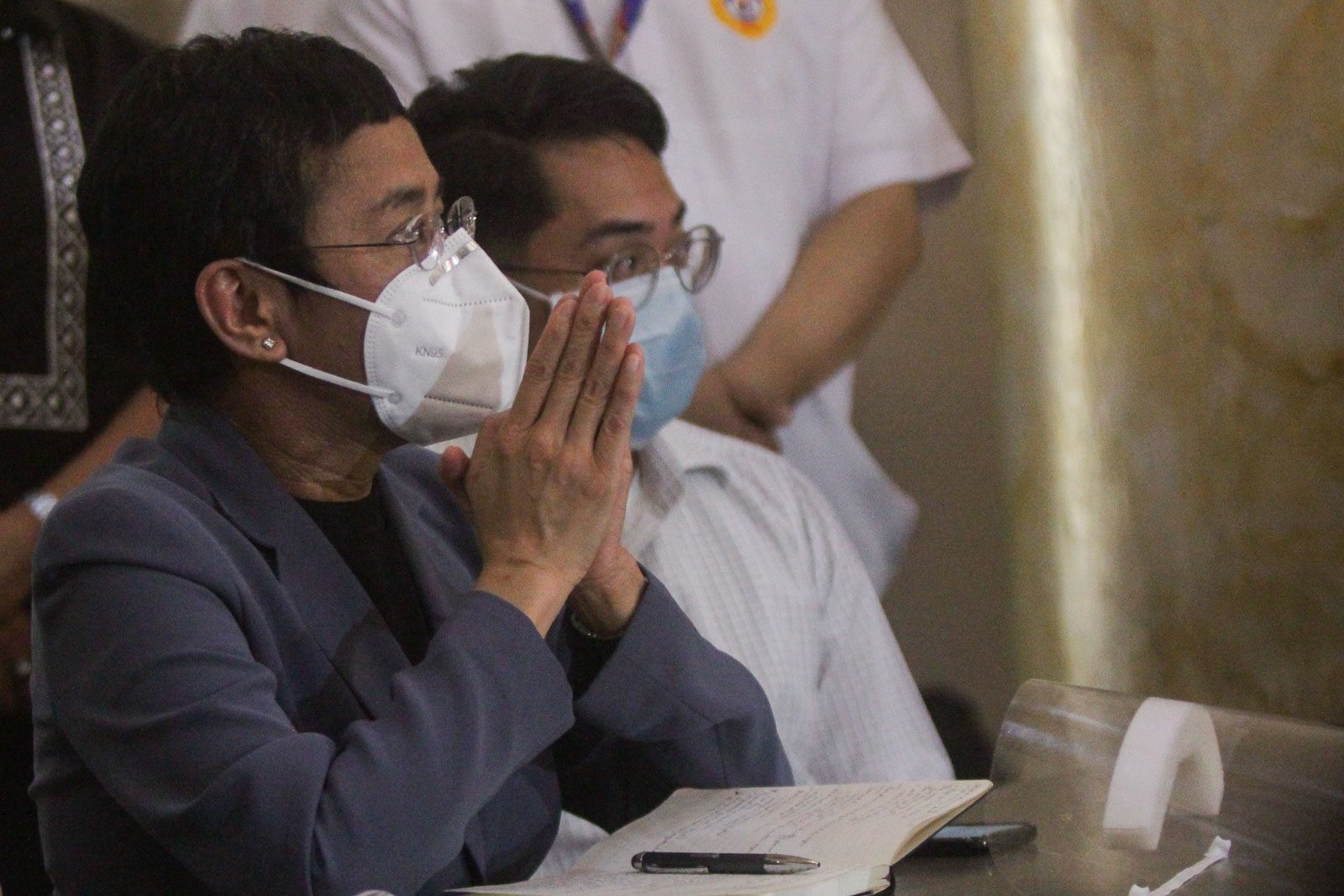SUMMARY
This is AI generated summarization, which may have errors. For context, always refer to the full article.

MANILA, Philippines (UPDATED) – Six business groups denounced the conviction of Rappler chief executive officer Maria Ressa and former researcher-writer Reynaldo Santos Jr for cyber libel, saying it has a “chilling effect on journalism” and threatens Filipinos’ rights.
The Makati Business Club, Bishops-Businessmen’s Conference for Human Development, Filipina CEO Circle, Judicial Reform Initiative, Institute of Corporate Directors, and Institute for Solidarity in Asia released a joint statement on Monday, June 15, to “express their profound disappointment over the verdict.”
“It is a big blow to press freedom especially given serious constitutional questions on whether the law is applicable at all. This would threaten our other rights and freedoms, which are woven together to serve and protect society, especially the most vulnerable,” the groups said.
They noted that the verdict against Ressa and Santos comes in the wake of the ABS-CBN shutdown and the anti-terrorism bill “that dangerously diminishes civil rights.”
“The verdict – together with other recent developments – has a chilling effect on journalism at a time when we need it most: to get reliable information as we all fight the pandemic, especially when wrong information and intentional misinformation abound,” the groups said.
They called on all citizens and public officials to preserve “constitutionally-guaranteed freedoms which are so essential to rebuilding [the] economy,” which has been ravaged by the coronavirus pandemic.
Vice President Leni Robredo, opposition lawmakers, human rights groups, and Filipinos on social media have also condemned the guilty verdict.
The cyber libel case stemmed from Santos’ May 2012 article on the late former chief justice Renato Corona’s links to businessmen, including Wilfredo Keng.
The article was published 4 months before the cybercrime law was enacted in September 2012.
Keng filed his complaint only in October 2017, more than 5 years after the story was published. His camp claimed the story was “republished” in 2014 and thus is covered by the cybercrime law, but Rappler merely corrected a typographical error – “evation” to “evasion.” (READ: Rappler statement on cyber libel conviction: Failure of justice, failure of democracy) – Rappler.com
Add a comment
How does this make you feel?
There are no comments yet. Add your comment to start the conversation.